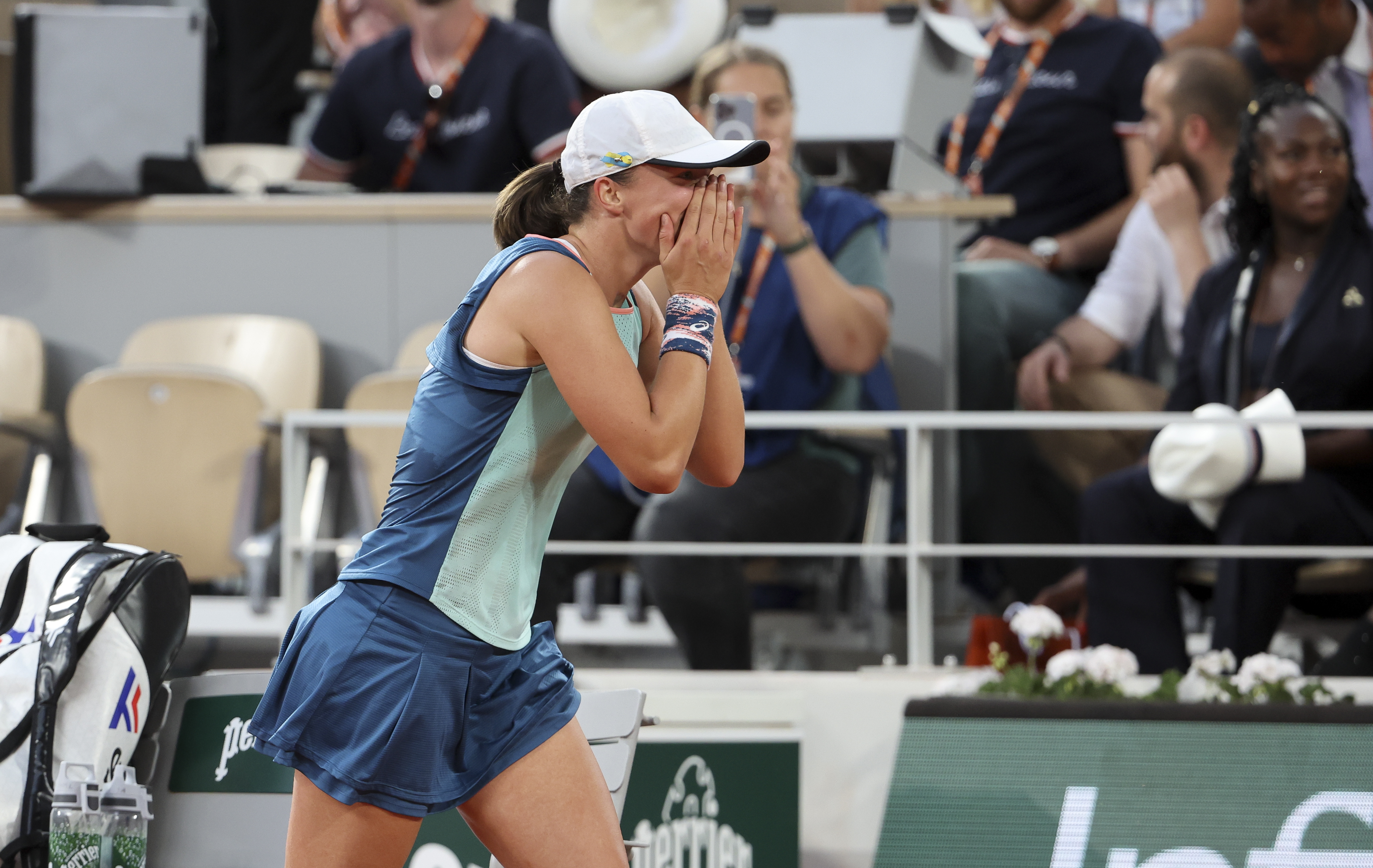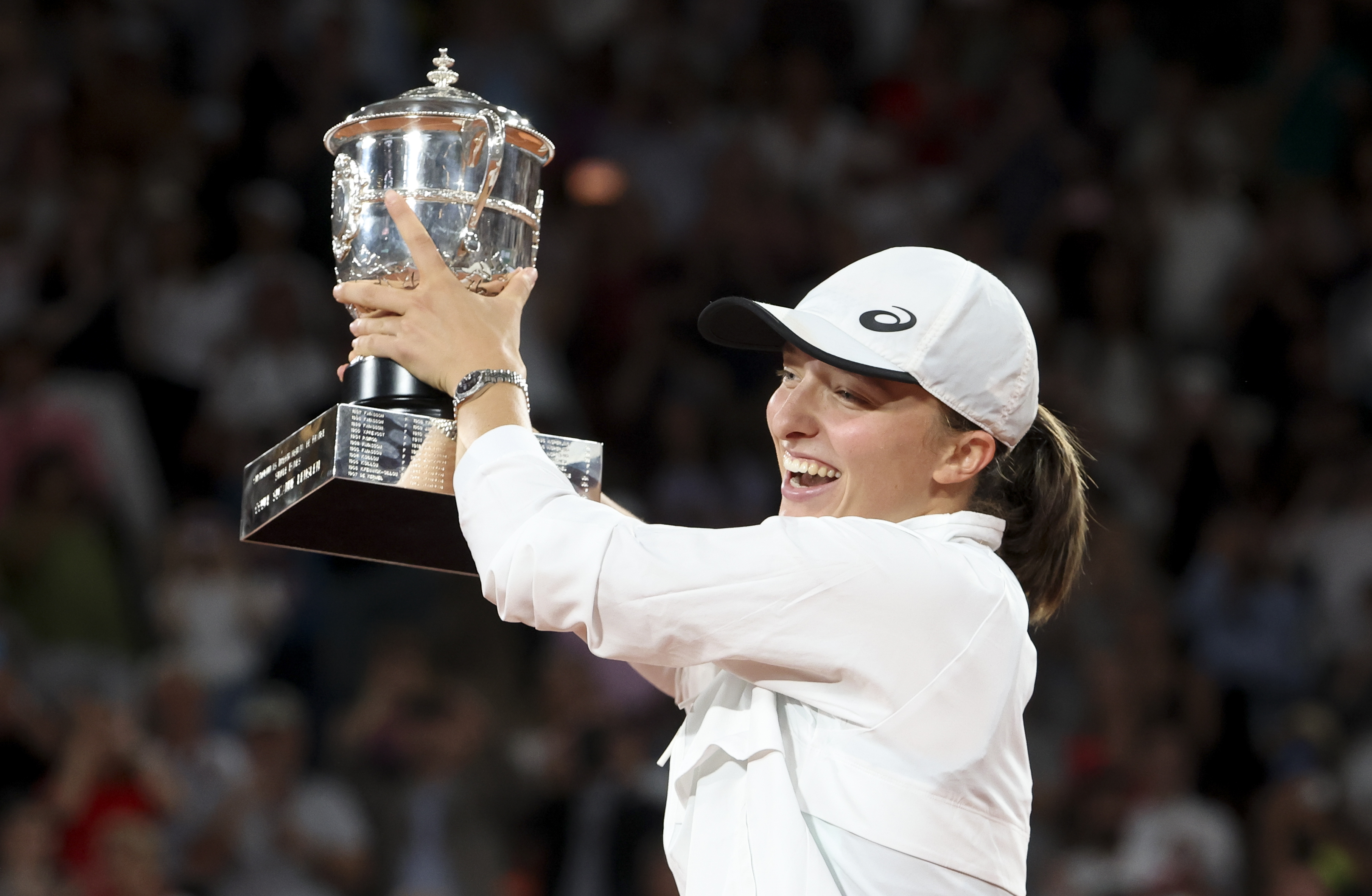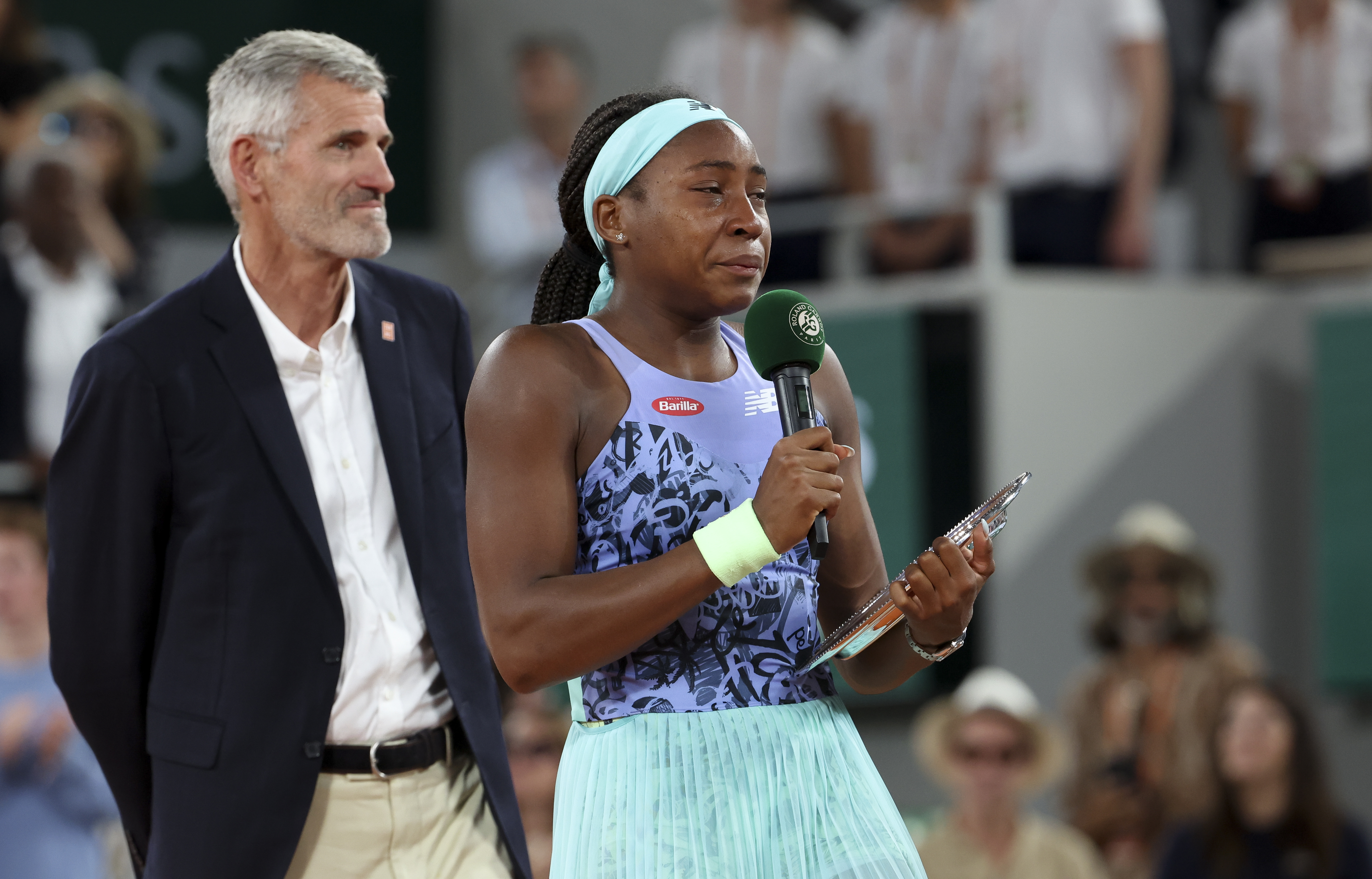Iga Swiatek’s winning streak began to feel like a burden, she said, with all of the attention it gained as it grew, all of the pressure to keep it going, especially with a Grand Slam title in the offing.
As good as her forehand is, as skilled as her hit-the-ball early reflexes are, as much as her serve keeps improving, what Swiatek needed, above all, was a way to shut out the noise, to ignore all the stats and facts, and to find a way to focus — match to match, set to set, game to game, point to point, shot to shot.
READ MORE: Zverev’s Roland-Garros injury ‘very serious’
READ MORE: Deception’ behind weight miss says Kambosos
READ MORE: Fittler refuses to rule out stunning Bulldogs move
During the French Open, she did that away from the court by reading (Alexandre Dumas’ “The Three Musketeers” was one choice) and on the court by singing in her head (a Dua Lipa song she called a “guilty pleasure”). Most of all, she allowed her play to rule the day. Thanks to a 6-1, 6-3 victory over 18-year-old American Coco Gauff in Saturday’s final, the top-ranked Swiatek leaves Roland Garros with her second championship — and a run of 35 matches without a loss.
“It is, like, basically the hardest part of the job, I would say, because you can see at Grand Slams that there are a lot of surprises. It’s not easy to cope with all that different atmosphere and the pressure,” Swiatek, who is 21, said after adding this trophy to the one she won in Paris in 2020 while ranked outside the top 50. “For me, I felt the baggage. The hardest thing is like not letting yourself think about that and overanalyze and not letting yourself think about all the numbers and the odds.”
Ah, yes. The numbers. They’re impressive.
Swiatek has won her past six tournaments. She has won 56 of her past 58 sets. She is 42-3 this season. She has won 16 sets by a 6-0 score. And her unbeaten streak now is one better than the best Serena Williams ever had, 34, and equals the longest this century (Williams’ older sister, Venus, had a 35-match run in 2000).
“Kind of doing something more than Serena did,” Swiatek said, “it’s something special.”
Swiatek has emerged as a dominant figure in tennis, stepping into a gap that presented itself with 23-time Grand Slam champion Serena out of action for nearly a year and three-time major champ Ash Barty announcing in March she would retire at age 25 and relinquish the No. 1 ranking.
That allowed Swiatek to move up to the top of the WTA, and she’s shown she is a deserving resident there.
“She does a good job of taking the pressure moments and really rising to the occasion. And today she rose to the occasion,” said the 18th-seeded Gauff, who was appearing in her first Grand Slam final and hadn’t dropped a set in the tournament. “I do that pretty well, too, but today, she was just on another level.”
Gauff is now 0-3 against Swiatek.
“The past couple months have truly been amazing and you totally deserve it,” Gauff told Swiatek, then added with a chuckle: “Hopefully we can play each other in more finals, and maybe I can get a win on you one of these days.”
On the warmest day of the tournament, with the temperature at 82 degrees Fahrenheit (28 Celsius), just a few puffs of white in the blue sky at the outset turned into thick, foreboding gray clouds by the second set, accompanied by a thunderclap. The match ended after 1 hour, 8 minutes, before the rain arrived.
Gauff did not get off to the best of starts: It was 4-0 in a blink.
Swiatek broke serve right from the get-go, with plenty of help from Gauff, who put a forehand into the net, double-faulted — eliciting some sighs of “Awwwww” from the crowd — dumped a forehand into the net, and pushed another forehand long.
Not in all cases, of course, but often, the spectators at Roland Garros tend to back an underdog or whichever player is trailing — both of which applied to Gauff. So there was a surfeit of shouts of “Allez, Coco!” One person yelled, “Coco, you can do it!” There were repeated cries of her chant-ready, two-syllable first name.
As things appeared to be getting away from her, Gauff slapped her thigh or covered her eyes, shook her head or looked up toward her parents in the stands.
What she never did was waver or concede anything.
Gauff began the second set by breaking Swiatek for the only time, and then holding to go up 2-0. Might this transform into a much closer contest? Might Gauff push Swiatek to a third set?
No. Swiatek quickly recalibrated and reasserted herself, breaking back for 2-all as Gauff’s propensity for miscues returned. By the end, Gauff had more unforced errors, 23-16, and also fewer winners: 14 for her, 18 for Swiatek.
Also key to Swiatek’s presence, and swiftly burgeoning aura, is her calmness on court. She has traveled on tour with a sports psychologist, who was in Swiatek’s guest box on Saturday, and works on various elements of her professional and personal lives.
That includes an emphasis on maintaining focus and setting priorities, such as the determination that she is still too new at this whole business of attempting to win Grand Slam titles that she decided it was best not to attend the Champions League soccer final in Paris last weekend, something Nadal did do.
Maybe a couple of years down the road, Swiatek surmised, a night out might be a welcome distraction. For now, Swiatek said, she felt she needed to keep all of her attention on tennis.
Why mess with success?



